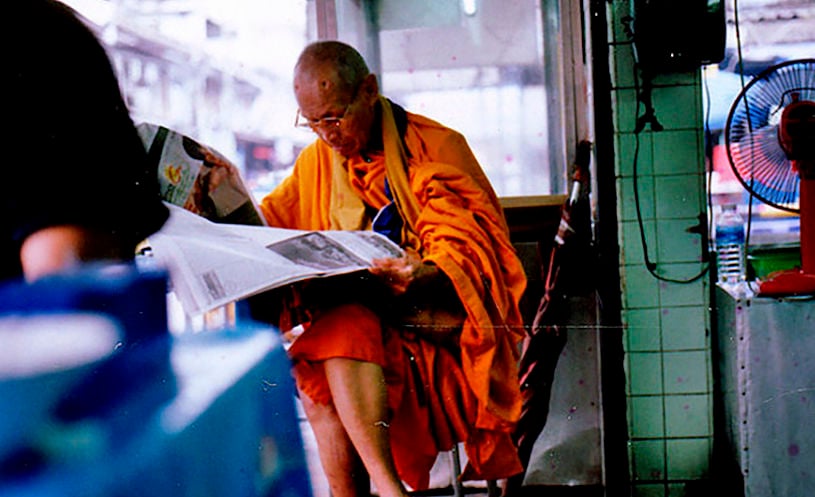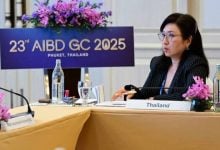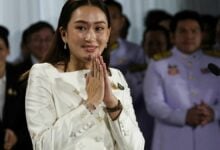Foreign media express anxiety over Thailand’s press freedoms

Foreign journalists in Thailand are expressing concern about what they are calling restrictions on press freedom. Speaking at a recent Foreign Correspondents’ Club of Thailand forum, speakers said that the current laws are “proving to be an obstacle to reporting of the anti-government protests”, despite government assurances there have been no curbs on freedom of expression.
The “Journalism Without Fear or Favour” forum was held to discuss regional press freedoms. The event was sponsored by the Netherlands Embassy in Bangkok to commemorate the World Press Freedom Conference 2020 on December 9 and 10 in The Hague. The event also coincided with International Human Rights Day on December 10.
Matthew Tostevin, the Southeast Asia editor for Reuters, spoke of the legal challenges which foreign media face when reporting news in the region, particularly referencing Thailand’s lese majeste law – Section 112 of the Criminal Code – and the prevarication over its implementation during a period of protests targeting the country’s monarchy.
“At a certain point this year, we were told it was not being applied. As the media reflected, there has been a whole great deal more reporting in both local and international media of the criticisms of the monarchy.”
“But now, of course, the sort of question is over how long such openness can last and how that affects us and our reporting from this country.”
The Bangkok Post asked the deputy government spokeswoman Rachada Dhnadirek for a comment on the matter. She responded saying that the government had not placed any restriction on the freedom of its media or citizens, but everybody must abide by the law (somewhat of an oxymoron within the same sentence).
“It [the news] must be truthful and undistorted”.
Matthew also described the week-long imposition of the State of Emergency in October that “outlawed the publication of information that could threaten national security or create fear as well as the criminal defamation law that intimidates journalists”.
He also made examples of other regional cases ranging from censorship and lawsuits, to imprisonment and bans on access to some areas, eg. Myanmar’s Rakhine state and Indonesia’s Papua province.
In April, Reporters Without Borders published its annual World Press Freedom Index. Generally, and historically, South East Asian nations have performed poorly in this list. Malaysia outranks its neighbours scoring 101st place out of 180 countries, followed by Indonesia (119), the Philippines (136), Myanmar (139), Thailand (140), Cambodia (144), Brunei (152), Singapore (158), Laos (172), and Vietnam (175).
Tan Hui Yee, the Indochina bureau chief for Singapore’s The Straits Times, says that press freedom had regressed since new cybersecurity laws were hatched by authoritarian governments in Thailand and Vietnam when the term “fake news” gained currency and then labelling any criticism of their governments as “fake’ and therefore against the law.
“But the problem with the term is that everything is lumped into a hazy mess. Fake news can be used to described false information and disinformation, but also opinions you disagree with. The pandemic has further put restrictions on the press with the nation having been under a state of emergency since March.”
“They say they need this to coordinate Covid-19 responses, but we have no idea how long this emergency will go on or whether it will be used for other purposes.”
On this point, Thai government spokesman Anucha Burapachaisri told the Bangkok Post that the current emergency decree in Thailand, extended five times since it was introduced in March this year, is simply being enforced only to contain the spread of the coronavirus. (The current extension is in place until the start of January, and given the current situation in Thailand, appears likely to be extended again)
SOURCE: Bangkok Post | Chiang Mai
Note from The Thaiger:
As a media player in Thailand we’ve never been contacted by, or been asked to edit or remove stories by, police, members of the parliament, government or Army. The Thaiger has published, from time to time, some vigorous editorials against various Thai government and official decisions, and their actions, without any consequences.
As a foreign-owned business, we take our lead from the local Thai media and some of the larger foreign English-speaking media. Although there are a few no-go issues in Thailand, or where words need to be more carefully selected than in other stories, The Thaiger finds Thailand’s press reasonably robust, broad in coverage and wide in opinions.
Many of the functions expected from Thai press by politicians and officials aren’t written but are instead long-term conventions and nuanced cultural behaviours. Certainly there are also times where some members of the press are ostracised and threatened with criminal charges, but these are rare.
Whilst foreign media often find a lot of these subtleties confounding and see them as barriers, long-time journalists working in Thailand are usually happy to resort to coded language and fluffy writing to report sensitive stories and continue their work.
Latest Thailand News
Follow The Thaiger on Google News:


























